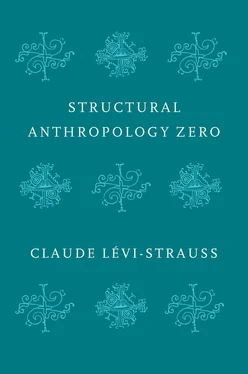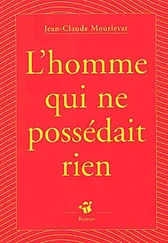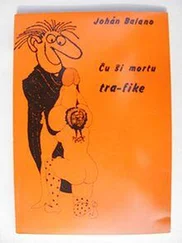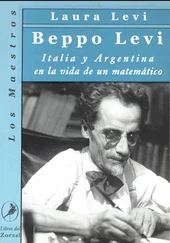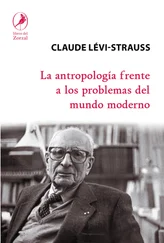When he wrote these lines, Lévi-Strauss was a cultural attaché, and it is very likely that they bear the mark of his exchanges with Henri Laugier (thanks to whom he had obtained that position), himself the Under Secretary-General of the brand-new United Nations, to whose founding he had contributed. In “The Foreign Policy of a Primitive Society,” the ability of Amerindians to recognize rivers as “international waterways” and the strategies they developed to settle rivalries “in a no doubt hostile yet not overly dangerous manner” thus served as models. In the same vein, his description of the “industrial and commercial specializations” of the Xingu tribes is a discreet call for a form of international division of labor, facilitated by diplomats whose role would be similar to the multilingual mediators that were found in each of the villages. It is probably the Nambikwara conception of territory that offered the most fertile ground for contemporary political thought, since Amerindians entirely severed the notion of territory from that of land and thus paved the way for an immaterial definition of community whose unity was no longer determined by borders but by shared values: “For us, the Nambikwara territory covers a specific land area; it is a space bounded by borders. For them, this reality appears as different as the X-ray image of a body would from the image of that same body seen by the naked eye. Territory is nothing in and of itself; it is reduced to a set of modalities, to a system of situations and values that would appear meaningless to a foreigner and might well even go unnoticed” (pp. 143–4).
Rereading these texts of the 1940s, it is clear that the theory of exchange that would be mobilized in The Elementary Structures of Kinship – first for its heuristic value and ability to account for highly varied situations – had deep political resonance with very concrete implications. It also shows that, in Lévi-Strauss’s eyes, the role of social science had little to do with the one it would eventually come to play in the heyday of structuralist theory, during which, against his will, his name was regularly invoked as a figure of authority in the most varied domains, and those furthest from anthropology. Nor was his position that of an intellectual in the Sartrean sense of the term: his reflections on the links between war and trade do not fit within that philosophical tradition that has had much to say on the question, from Machiavelli to Benjamin Constant, via Hobbes and Montesquieu. It is indeed as an expert that the anthropologist felt licenced to offer political commentary – i.e. because he was a specialist of the comparison between societies, and because his expertise was anchored in an experience of the Amerindians of the Brazilian plateau and not in the mastery of philosophical notions and traditions. Indeed, in his view, this is one of the distinctive features of French anthropology, characterized by a collaboration between sociology and anthropology, whereas in other countries the former – which “calls for people accepting the social order” – is opposed to the latter – as “a haven for individuals poorly integrated into their own surroundings” (p. 36). “Modern sociology was born for the purpose of rebuilding French society after the destruction wrought first by the French Revolution and later by the Prussian War. But, behind Comte and Durkheim, there are Diderot, Rousseau and Montaigne” (p. 36). It would therefore be a mistake to draw a distinction, among French social scientists, between anthropologists who took over social criticism (Montaigne, Rousseau) and sociologists who sought to inspire legislative and governmental decisions (Comte, Durkheim). The applied approach of the latter was never cut off from the fundamental approach of the former, and the articles of the 1940s seek to maintain the link between theoretical argumentation and political initiative. They represent a similar kind of recourse, after a period of troubles, to “social philosophy.” In much the same way as Durkheimian philosophy had set out both to study the phenomenon of the social and to rebuild French society after the war of 1870, the Lévi-Strauss of the 1940s hoped to contribute (alongside others) to national and international political renewal in the aftermath of world war. And, here again, expertise was a matter of circumstance and position: that of an exiled Jewish scholar, himself situated between several worlds, just as the indigenous mediators whose praises he sang and who were able “to speak all the languages” of the Brazilian plateau (p. 142).
“National sovereignty is not a good in itself”
The essential question remains: why did this political dimension disappear from the writings of Lévi-Strauss after 1950? More to the point, when he selected the articles that were to form Structural Anthropology , why did he retain only those in which this aspect does not appear? And when he incorporated these reflections of the 1940s into other later works, especially Tristes Tropiques , why did he “edit” out the more political passages?
There is no simple, unequivocal answer to these questions. There is, of course, the contingent and quickly obsolete dimension of some of his references, but Lévi-Strauss’s political reflections were general enough that they could have survived the narrow circumstances of their production. It is important to remember, as he himself often pointed out, that the early 1950s were a period of crisis for him – at the theoretical, personal and professional levels. 29By his own account, his two consecutive failures at the Collège de France, in 1949 and 1950, were at the root of it: “After this double disaster, I was convinced that I would never have a real career. I broke with my past, rebuilt my private life.” 30To this series of ruptures must be added the sale at auction in 1951 of the collection of Amerindian art he had built in New York, a dispersion which must have been traumatic, not only because it represented a loss but also because, for Lévi-Strauss, “the passionate impulse to collect” was intimately linked to the construction of identity, 31and this breaking up of the collection symbolized the fragmentation of the personal and psychological unity he had rebuilt in exile. “I live in a grave,” he told Monique Roman, who was to become his third wife. 32In any case, his texts of the 1950s convey a change of mood as well as of tone: the optimistic planning of the political articles of the 1940s (which may be interpreted as a vestige of the reformist Marxism of his younger years) 33was no longer appropriate. At the end of his life, when he was asked about the disappearance of politics from his intellectual horizon, Lévi-Strauss agreed, upon his interviewer’s insistence, to date it not from the early 1930s but from the war, conceding that he had taken part in a few Gaullist meetings in the early 1940s, yet always playing down his diplomatic work as a cultural attaché in New York from 1945 to 1947 and then his activities as a member of UNESCO’s International Social Science Council, over which he presided from 1952 to 1961. No need to suspect him of bad faith – such a reconstruction shows, rather, how profound his change of course truly was, its self-evidence retrospectively shaping the past, especially for someone like Lévi-Strauss who frequently narrated his own life experience and whose autobiographical accounts eventually sedimented. In the early 2000s, in the margins of a letter he had written to his parents in September 1942 that declares his intention to write a book unrelated to anthropology which would hark back to his “former conversations with Arthur” (i.e. Arthur Wauters, the Belgian Marxist activist who had initiated him into politics) – a book intended to “clarify a number of ideas,” made necessary in his view by the confusion that marred the political discussions of the time – Lévi-Strauss laconically scribbled: “No recollection.” 34
Читать дальше
